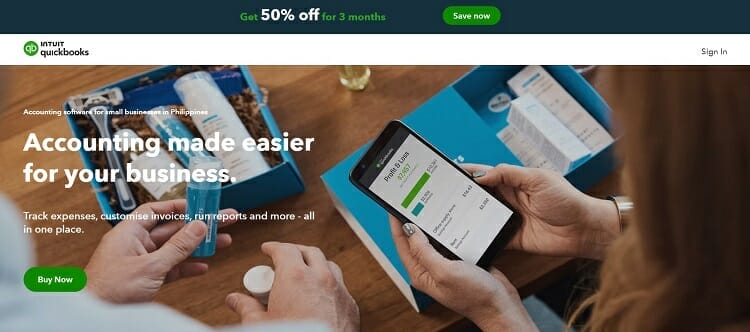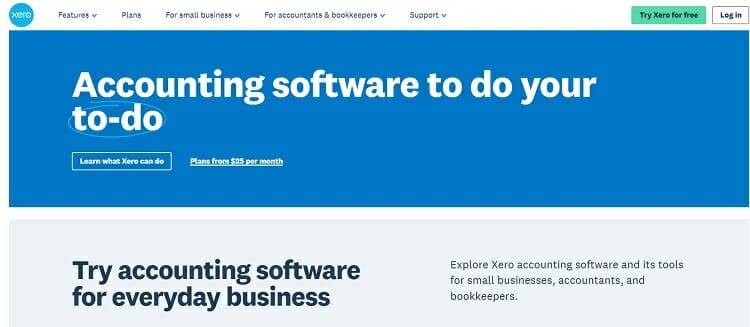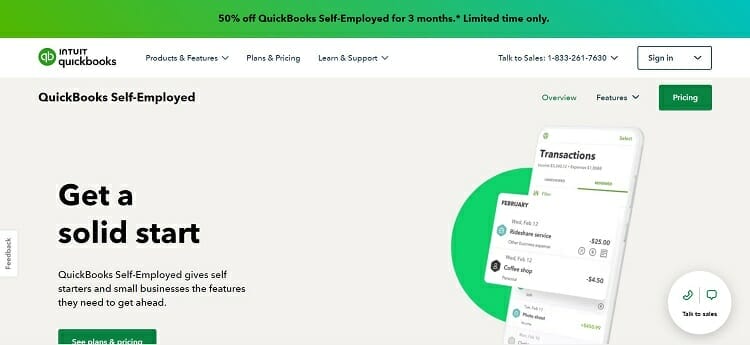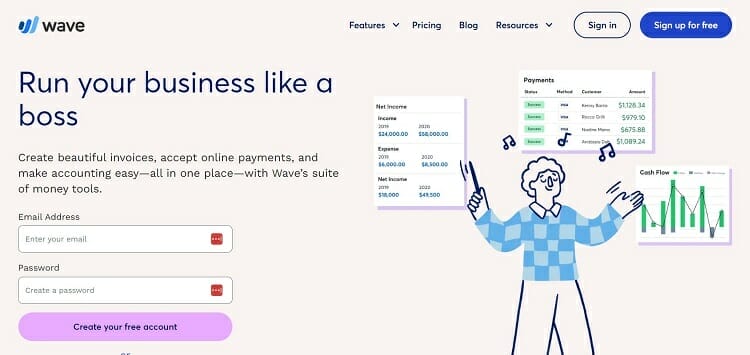29 Jul

Uncover the Top Accounting Software for 2024
Are you tired of spending hours on manual bookkeeping tasks? It’s time to upgrade your business with the top accounting software for 2024, such as Sage Accounting. We will discuss the role of accounting software and the different types available in the market. We will dive into the benefits of using accounting software, such as enhancing productivity, ensuring accurate financial reporting, and streamlining business operations. Additionally, we will explore the essential features to look for in accounting software based on the size and growth of your business.
Choosing the right accounting software can be overwhelming, so we will provide tips on conducting market research, comparing pricing and features, utilizing free trials, and seeking customer support. We will also discuss the cost of investing in accounting software and highlight security aspects to consider. By upgrading to modern accounting software, you can take your business to new heights in 2024.
Understanding the Role of Accounting Software in 2024
Accounting software plays a crucial role in the management of financial tasks for small businesses. With many options available for business owners they will have access to powerful tools that streamline their bookkeeping processes. These software solutions offer features such as invoicing, receipt tracking, inventory management, and payroll integration. Additionally, they provide real-time financial data, allowing business owners to make informed decisions. The ease of use, automation capabilities, and availability of mobile apps make these accounting software options even more appealing to small business owners.
While some software may offer advanced features and customization options, others provide a free plan or free trial to help entrepreneurs get started. When choosing the best accounting software for their needs, business owners must consider factors like pricing, scalability, and integrations with other business apps. By leveraging the benefits of accounting software, small businesses can effectively manage their financial transactions, track expenses, generate financial reports, and ensure compliance with tax regulations, including POS systems.

Our Top Accounting Software
Navigating the vast landscape of accounting software can be daunting. That’s why we’ve curated a selection of the best accounting software available in 2024 to streamline your decision-making process. Read on to discover the ideal match for your business’s accounting needs.
QuickBooks Online

Price: Starting at $30 per month
Based in the Cloud: Yes
Comes with a Mobile App: Yes
QuickBooks Online is the favored choice among many small business accounting experts, not just for its comprehensive functionality but also due to the extensive array of online learning resources and community forums available for instant help. A single, user-friendly dashboard provides access to all accounting features, ensuring a seamless and efficient bookkeeping experience.
Strengths:
- Easily scalable
- Widely utilized by accounting professionals
- Enables integration with external applications
- Operates in the cloud
- Includes a mobile app
QuickBooks Online, developed by Intuit, is a popular cloud-based accounting software for small businesses. It offers monthly subscription plans: Simple Start ($30), Essentials ($55), Plus ($85), and Advanced ($200). You can get a 50% discount for the first three months by skipping the free trial. The software grows with your business and can be upgraded as needed. The mobile app allows you to process payments, view reports, capture receipts, and track business mileage.
QuickBooks Payroll software integrates seamlessly with QuickBooks Online for payroll needs. Each subscription level offers more advanced features such as inventory management, time tracking, additional users, and cash flow insights. The Simple Start tier is ideal for service-based small businesses. The Essentials tier adds extra features for bill and time management. The Plus tier provides more options for inventory and personalization for product-focused small businesses.
The Advanced subscription offers additional features like expense management, premium apps, a dedicated account team, and on-demand training, including demos. All tiers allow integration with third-party apps like Stripe or PayPal. QuickBooks Online’s app store categorizes apps by function and provides helpful examples of their benefits, including financial accounting.
Xero

Price: Begins at $13 per month
Cloud-based: Yes
Mobile App: Yes
Xero’s clean, user-friendly interface and full integration with a third-party payroll service give it a distinct edge. Furthermore, businesses can enable online payments from customers via Xero’s seamless integration with Stripe, Gusto, and GoCardless.
Strengths:
- Cloud-based platform
- Includes mobile app
- Payroll integration with Gusto
- Marketplace for third-party apps
- Straightforward inventory management
Weaknesses
- Limited reporting capabilities
- Charges for ACH payments
- Restricted customer service
Established in 2006 in New Zealand, Xero has a global user base of over 3.5 million subscribers. While it is popular in New Zealand, Australia, and the United Kingdom, there are some cons to consider. With over 4,500 employees, Xero is expanding rapidly in the U.S. Xero offers three monthly subscription options: Early for $13 per month, Growing for $37 per month, and Established for $70 per month. They also have a full-service payroll add-on through Gusto. A 30-day free trial is available.
The Early plan has limitations with only 20 invoices or quotes and five bills per month. It suits micro-businesses with low transaction volume but high-value transactions like consulting or small service providers. The Growing and Established plans have no restrictions on invoices and bills. The Established plan offers additional features like multi-currency support, expense management, and project costing. All plans include Hubdoc for capturing bills and receipts.
FreshBooks

Price: Starting from $17 a month
Cloud-based: Yes
Mobile app: Yes, with some limitations
FreshBooks offers an unrivaled degree of customization for invoicing compared to other accounting software. Although its core feature is to create, receive, print, and pay invoices, it also caters to a business’ essential bookkeeping requirements during tax season. It’s especially beneficial for service-oriented businesses, making it easier to submit proposals, monitor real-time spending on projects, and process payments.
Strengths:
- Cloud-based platform
- Intuitive interface
- Allows integration with third-party apps
- Cost-effective
- Superior invoicing capabilities
Weaknesses:
- The mobile app comes with some limitations
FreshBooks, founded in 2003 in Toronto, started as invoicing software. It now has over 30 million users worldwide and offers four plans with a 10% annual payment discount. New members also receive introductory discounts. The plans are Lite ($17/month or $183.60/year), Plus ($30/month or $324/year), Premium ($55/month or $594/year), and Select, a customizable service with tailored pricing.
The main difference between the plans is the number of clients you can invoice each month: Lite (up to 5 clients), Plus (up to 50 clients), and Premium (unlimited clients). Note that these costs do not include any applied discounts. FreshBooks’ annual revenue is estimated to be over $50 million. FreshBooks is considered a great option and one of the best free accounting software available in the market.
The Select plan offers unlimited client billing and unique features for managing finances on the Internet. For an additional $10 per month, team members can use the software and access the advanced payment feature at no extra cost (usually $20 with other plans). FreshBooks integrates with third-party apps like Gusto and Google Workspace, and it allows for highly customized invoices and templates. FreshBooks is a valuable resource for budgeting, estimates/proposals, and customer payments.
QuickBooks Self-Employed

Price: Starts at $15 a month
Cloud-based: Yes
Mobile app: Yes
QuickBooks Self-Employed is our prime choice for part-time freelancers and independent contractors who primarily need to monitor income and expenditures for tax purposes. It’s engineered for business owners who file a Schedule C with their tax returns, automatically aggregating all business transactions into a spreadsheet.
Strengths:
- Cloud-based platform
- Available mobile app
- Mileage tracking feature
- Differentiation between business and personal expenses
- Synchronization with TurboTax
Weaknesses
- Data migration to other software is complicated
- Limited reporting capabilities
QuickBooks Self-Employed by Intuit is a cloud-based software that helps freelancers stay organized throughout the year. It offers forecasting, mileage tracking, expense sorting, receipt organization, and tax estimation and filing through TurboTax, including sales tax. Users can choose from three plans starting at $15 per month, with a 50% discount for the first three months.
The Self-Employed Tax Bundle includes federal and state tax filing with TurboTax, while the Self-Employed Live Tax Bundle also provides access to a CPA for year-round guidance and a final review of your tax return. The mobile app makes tracking mileage and capturing receipts easily, and you can classify transactions as business or personal.
Wave

Cloud-based: Yes
Mobile app: Yes
Wave is an optimal choice for small, service-based businesses that need to send straightforward invoices and aren’t looking for payroll services. At the end of the fiscal year, accountants can extract necessary reports from Wave to compile a business’s tax returns.
Strengths:
- Zero-cost accounting, invoicing, and receipt scanning
- No restrictions on transactions or billing
- Capability to run multiple businesses from a single account
- Unlimited user access
- Mobile app for on-the-go functionality
Weaknesses
- Integrations only available through Zapier
- Higher transaction fees for credit card payments
- Full-service payroll is available only in 14 states
Wave, a free accounting software, offers essential features for small businesses. It includes income and expense tracking, financial reporting, invoicing, and receipt scanning. While payment processing and payroll come at an additional cost, all bookkeeping, invoicing, and reporting features are completely free.
Wave charges fees for processing customer payments: 2.9% + 60¢ per transaction for Visa, Mastercard, and Discover, and 3.4% + 60¢ per transaction for American Express. ACH payments incur a 1% transaction fee (minimum $1). Note that Wave provides two payroll plans as add-on services: the first plan costs $20/month plus $6/employee or contractor; the second plan costs $40/month plus $6/employee or contractor and is only available in 14 states.
Types of Accounting Software Available in the Market
Billing and Invoicing Accounting Software
In the bustling world of business, Billing and Invoicing Accounting Software serves as a vital tool that streamlines your billing process. This software handles the creation of invoices, automatically calculates totals, and even schedules them for distribution. What’s more, it can send automated reminders to your clients, making sure you receive payments punctually. It’s more than just a convenience; it’s a necessity for keeping your business’s cash flow healthy and reliable.
Payroll Accounting Software
Payroll Accounting Software comes to the rescue when it’s time to manage employee salaries, bonuses, and deductions. This software handles all the calculations, complies with tax laws, and ensures your employees get paid correctly and on time. By eliminating human errors and automating the payroll process, this software turns a complex task into a straightforward one, allowing you to focus on your core business activities.
Small Business Accounting Software
Being a small business doesn’t mean you have to skimp on quality. Small Business Accounting Software is designed specifically for the needs and budgets of smaller enterprises. It offers comprehensive solutions, covering everything from expense tracking and invoice management to financial reporting. This software helps you keep a keen eye on your business’s financial health and equips you with the insights needed to make sound business decisions.

ERP Accounting Software
ERP (Enterprise Resource Planning) Accounting Software is like the multi-tool of accounting software. It integrates all aspects of your business, including purchasing, inventory management, sales, and accounting, into one cohesive system. By providing a unified view of your business operations, it helps in streamlining processes, improving efficiency, and promoting data-driven decision-making. It’s a robust solution for businesses looking to optimize their operations and improve their bottom line.
Spreadsheet Software for Accounting
For businesses that prefer simplicity, Spreadsheet Software for Accounting is an excellent choice. It provides a basic platform to record income, expenses, and other financial data. While it lacks the automation features of more specialized software, it gives you the flexibility to customize your accounting system. It’s the perfect choice for those who prefer hands-on control over their finances and have simple accounting needs.
Custom Accounting Software
For businesses with unique needs, Custom Accounting Software offers a tailor-made solution. This software is designed to cater to the specific requirements of your business, be it industry-specific regulations or unique operational practices. It provides the flexibility to design your financial processes and integrate seamlessly with your existing systems. It’s an ideal choice for businesses that require a high level of customization and have complex accounting needs.
The Benefits of Accounting Software
In today’s rapidly evolving business world, effective accounting practices are more vital than ever. Implementing accounting software can offer myriad benefits, streamlining your financial tasks and increasing accuracy. Let’s delve into the compelling advantages of adopting such a system for your business.
Enhancing Productivity and Efficiency
Accounting software is essential for small businesses as it enhances productivity and efficiency. It automates repetitive tasks, saving time for business owners to focus on strategic activities. Real-time data access enables faster decision-making, while integration with other systems streamlines processes and reduces errors.
Advanced reporting capabilities provide financial insights for better decision-making and planning. Enhanced security features protect sensitive financial information. Accounting software is a valuable tool for small businesses looking to optimize productivity and efficiency.
Ensuring Accurate Financial Reporting
Accounting software is crucial for accurate financial reporting in small businesses. It automates calculations, reducing the risk of human error. The software generates real-time reports and organizes financial data for easy access. Accurate reporting is essential for decision-making and compliance. It also saves time and resources by automating manual tasks, allowing businesses to focus on other critical operations.
Streamlining Business Operations
Accounting software streamlines business operations by automating repetitive tasks, saving time, and reducing the risk of errors. With the ability to track income and expenses, businesses gain improved financial visibility. The automation of invoicing and payment processing helps manage cash flow effectively.
Additionally, accounting software generates comprehensive reports that provide valuable insights for informed decision-making. By streamlining processes, businesses can achieve increased efficiency and productivity. This not only saves time but also allows employees to focus on more strategic tasks.
With the integration of NLP terms like QuickBooks, Sage, accounts payable, and automation, accounting software becomes an essential tool for small businesses in 2024.
Features to Look for in Accounting Software
When choosing accounting software for your business, there are several key features to consider. Firstly, look for cloud-based functionality that allows you to access your financial data from anywhere, at any time. This ensures flexibility and convenience for small business owners on the go. Scalability is another important factor, as you want software that can handle increasing amounts of data as your business grows.
Integration capabilities are also crucial, so the software should seamlessly integrate with other business systems like CRM or inventory management software. Furthermore, automation features can greatly streamline your workflow by automating repetitive tasks such as invoicing, payroll, and expense tracking.
Robust reporting and analytics capabilities are essential for gaining insights into your business’s financial health. Lastly, prioritize security and ensure that the software has strong measures in place to protect sensitive financial information.
Essential Features for Small to Medium Businesses
Cloud-based accounting software provides flexibility and accessibility for small and medium-sized businesses (SMBs). It allows users to access their financial data from anywhere, at any time, making it convenient for remote work or on-the-go business owners. Integration with other business systems, such as payroll and inventory management, streamlines processes and eliminates the need for manual data entry.
Customizable reporting and analytics features offer valuable insights for informed decision-making, helping SMBs track financial performance and identify areas for improvement. Scalability is crucial for expanding businesses, as accounting software should be able to accommodate their growing needs. Additionally, a user-friendly interface and intuitive navigation make it easy for non-accounting professionals to navigate and utilize the software effectively.
Additional Features for Growing Businesses
As your business grows, it’s essential to have accounting software that can keep up with your changing needs. Look for software that offers advanced reporting capabilities, allowing you to track your financial performance and make informed decisions.
Scalability is another crucial feature to consider as it ensures that the software can handle increased transactions and accommodate the growth of your business. Integration with other business tools, like CRM or project management software, is also valuable for seamless workflow and streamlined processes.
Additionally, multi-currency support is vital for businesses operating globally or dealing with international clients. Lastly, customization options allow you to tailor the software to fit the unique needs and processes of your business.

How to Choose the Right Accounting Software for Your Business?
Consider your business’s specific needs and size when choosing accounting software. Evaluate the features and functionality of different options, ensuring user-friendliness and good customer support. Also, factor in the cost and scalability of the software as your business grows.
Conducting Thorough Market Research
When selecting the best accounting software for your small business, conducting thorough market research is essential. It ensures that the software meets your specific business needs. Start by identifying the key features and functionalities you require through this research. Compare different software vendors, assessing their offerings, pricing, and customer reviews. It’s important to consider the scalability and compatibility of the accounting software with your existing systems. By conducting thorough market research, you can make an informed decision and find the right accounting software that aligns with your business goals.
Comparing Pricing and Features
When comparing pricing and features of accounting software options for your small business, it’s essential to consider several factors. First, take a look at the pricing structure offered by different software providers. Determine whether they offer a one-time purchase option or a subscription-based model.
Next, evaluate the essential features that are important for your business, such as invoicing, expense tracking, and financial reporting capabilities. Additionally, compare the scalability options of each software to ensure it can meet your future growth needs. It’s also crucial to consider any additional costs for add-ons or integrations that may be necessary. Lastly, evaluate customer support options and user reviews to ensure you’ll have adequate assistance when needed.
Utilizing Free Trials
When looking for the best accounting software for small businesses in 2024, free trials are highly beneficial. They let you test different options and assess features, usability, and compatibility. You can also evaluate customer support quality. Free trials allow you to compare platforms and make an informed decision without the risk of investing in software that doesn’t meet your requirements.
Seeking Customer Support and After-Sales Service
When choosing accounting software for your small business, consider the provider’s customer support and after-sales service. Look for reliable support through multiple channels like phone, email, and live chat. Research customer reviews to assess their responsiveness and effectiveness before making a decision.
Cost of Investing in Accounting Software
When considering the cost of investing in accounting software for your small business, there are several factors to keep in mind. First, you need to consider the initial cost of purchasing the software. Additionally, it’s important to look into any additional costs such as annual subscription fees or maintenance fees. However, don’t solely focus on the costs, but also evaluate the value and benefits that the software will bring to your business. Calculating the potential return on investment (ROI) is crucial in determining whether the software is worth the investment. Lastly, compare the costs of different accounting software options to find the best fit for your budget and needs.
Understanding Pricing Models
When it comes to accounting software, understanding the pricing models is essential in finding the best fit for your business needs and budget. One common pricing model is the subscription-based option, where you pay a monthly or annual fee for access to the software. Another option is perpetual licensing, where you make a one-time payment for lifetime use of the software.
Additionally, some software providers offer a freemium model, where basic features are free, but additional functionality requires payment. It’s important to consider any potential additional costs, such as training, support, and upgrades. By comparing different pricing models, you can make an informed decision that suits your business requirements.
Identifying Hidden Costs
When considering accounting software for your small business, it’s important to be aware of the potential hidden costs. While the upfront costs may seem affordable, there are additional expenses to consider. These hidden costs can include fees for additional modules or customization, as well as ongoing support. While these costs may not be obvious at first, they can add up over time and impact the overall return on investment for your business. To make an informed decision, it’s essential to conduct a thorough analysis of the potential hidden costs before selecting an accounting software solution.

Security Aspects of Accounting Software
When selecting accounting software, it is important to give priority to security. It is advisable to search for software that offers robust encryption, precise access controls, and automatic data backup. It is crucial to ensure compliance with regulatory bodies such as the Financial Accounting Standards Board (FASB), Generally Accepted Accounting Principles (GAAP), Internal Revenue Service (IRS), American Institute of Certified Public Accountants (AICPA), Securities and Exchange Commission (SEC), Sarbanes-Oxley Act (SOX) as well. Audit trails play a significant role in monitoring changes made to financial records. Additionally, considering software that provides two-factor authentication can further enhance security measures.
Ensuring Data Privacy and Protection
It’s crucial to consider data privacy and protection. Look for software that offers robust encryption and secure data storage to safeguard sensitive financial information. Additionally, opt for software that allows you to set different levels of access for different users, ensuring that only authorized individuals can view and modify financial data.
Regular security updates are essential to protect against emerging threats, so prioritize software that provides these updates. Reliable backup and recovery systems are also vital to prevent data loss. Lastly, verify that the software complies with relevant data protection and privacy regulations.
Compliance with Regulatory Standards
Choosing accounting software for your small business requires compliance with regulatory standards. This ensures legal protection and safeguards sensitive financial information. Look for software with built-in controls, audit trails, and data encryption to meet these requirements. Streamline your business processes while maintaining data security by selecting software that aligns with regulatory standards.
Overview of Free and Open-Source Accounting Software
Free accounting software is a valuable asset for small businesses managing their basic accounting needs. It offers features like invoicing, expense tracking, and financial reporting. Open-source accounting software provides more flexibility and customization options for businesses with specific requirements.
However, free software may have limitations in terms of features and support, while open-source software benefits from ongoing enhancements and bug fixes by a community of developers. Before choosing between free and open-source software, evaluate your business needs. Consider factors like size, complexity of accounting processes, and support required. Make an informed decision that aligns with your goals and objectives.
Difference between ERP and Accounting Software
ERP software, also known as Enterprise Resource Planning software, integrates various business processes, including accounting. On the other hand, accounting software primarily focuses on financial management. While accounting software offers features such as invoicing, payroll management, and budgeting, ERP software provides a broader range of functionalities, including inventory management, supply chain management, and customer relationship management. ERP software is generally more suitable for larger organizations that require comprehensive business management solutions.
In contrast, accounting software is often sufficient for small to mid-sized businesses with simpler accounting needs. Additionally, accounting software is generally more cost-effective and easier to implement and maintain compared to ERP software, which can be more complex and expensive. The choice between ERP and accounting software depends on the specific requirements and size of your business, including factors like scalability, integration capabilities, and budget considerations.
Wrapping It Up
QuickBooks Online clinches the top spot in our list due to its scalability, extensive training resources, and comprehensive mobile app. However, we understand that every business is unique and might require a different solution. That’s why we’ve highlighted other potent options: FreshBooks, which offers affordable customization; Wave, a free or cost-conscious choice; or QuickBooks Self-Employed, tailored specifically for the needs of freelancers and independent contractors. Remember, the perfect accounting software for your business is out there. Here’s to smoother bookkeeping and stronger financial health.
As a parting note, if you’re a drop shipper looking to simplify your eCommerce operations, we highly recommend the Imporify app. This innovative tool empowers you to effortlessly import products into your eCommerce store and fulfill orders with just a few clicks. Embrace the convenience and enhanced efficiency that Imporify brings, and focus on what you do best – growing your business.
Ready to take your eCommerce venture to the next level? Try Imporify today!
Helping thousands of people to automate their dropshipping business. Skilled in Marketing Management, Advertising, and eCommerce.
Recent Posts
 How To Find Winning Products For Dropshipping? Guide for Beg…May 2, 2024
How To Find Winning Products For Dropshipping? Guide for Beg…May 2, 2024 Successful Dropshipping Techniques To Succeed In Dropshippin…April 15, 2024
Successful Dropshipping Techniques To Succeed In Dropshippin…April 15, 2024 5 Best Practices For Effective Inventory ManagementApril 8, 2024
5 Best Practices For Effective Inventory ManagementApril 8, 2024 How Many Products Should I Start With Dropshipping?April 7, 2024
How Many Products Should I Start With Dropshipping?April 7, 2024 Know the Best Product Research Tools for DropshippingApril 4, 2024
Know the Best Product Research Tools for DropshippingApril 4, 2024





Moshe